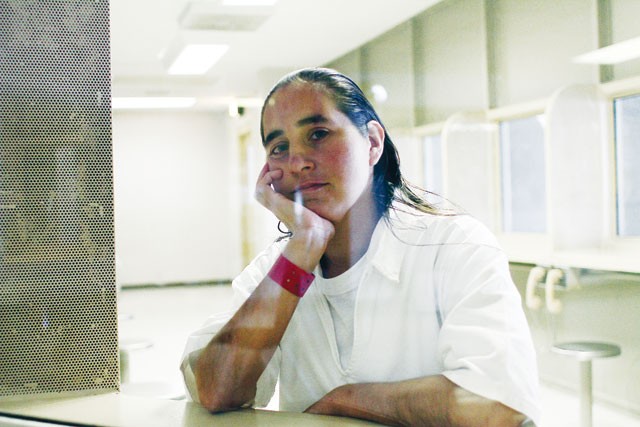Got hope? Bexar health statistics still unequal
UT Health Science Center's Center for Medical Humanities celebrated 10 years of being a voice of "compassion in medicine" with a shocking look at the still-yawning race-related gaps in health care in Bexar County. Dr. Anil Mangla flew point on a panel of experts that included the CEO of Methodist Healthcare Ministries and state Senator Leticia Van De Putte, but it was most telling that the director of epidemiology introduced his findings by explaining how he had grown up in Apartheid South Africa — no stranger to race-based disparities here. In fact, the most recent data shows that Bexar County has twice the number Hispanic diabetics as white, and that those Hispanic diabetics are again twice as likely as their white counterparts to suffer diabetes-related amputations. While blacks and Hispanics sit at the top of the obesity chart (with 53 percent and 40 percent, respectively), those classified as white saw an obesity rate of 26 percent. Among teens, however, Hispanics are again in the lead, with a 37 percent obesity rate.
"What disturbing data," said Methodist CEO Kevin Moriarty. "It hasn't changed in a lot of years, but it has the ability to change." Saying we need to move beyond politicized Left/Right thinking, he tossed out an idea: consolidate the 16 school districts "created by segregation" into only a handful to bring health education to an equal level. "If we put it in a political framework we'll never get anywhere," he said. "We need to put it in terms of what's right."
On that point — and speaking from a neighborhood that has the highest teen dropout and pregnancy rates, as well as diabetes — Senator Van De Putte spoke of the chokehold of poverty. Interestingly, when the panel was surveyed as to what the single most important change would be to affect these numbers, Mangla spoke of teaching better behavior. Moriarty narrowed that down to "education." Another refined further, saying "educate the girl." The next: "Women." ("If you educate the woman, you educate the whole family.") At the far end of the table, Van De Putte got the final word — bucking the trend. "Poverty," she answered. "Even with the greatest education system if your family is poor it does not allow for that hope. … If they have no hope, they are incapable of making good decisions. It's almost like they're paralyzed."
Innocence case gaining traction
Elizabeth Ramirez, Anna Vasquez (above), Cassandra Rivera, and Kristie Mayhugh were accused of unspeakable things. Ramirez's nieces, then ages 7 and 9, claimed a week-long stay at their aunt's one-bedroom West Side apartment in July 1994 devolved into an orgy-like nightmare. The girls told authorities the women held them down by their wrists and ankles, repeatedly violating them. The women threatened to kill them and their families if they ever squealed, they claimed.
But this year one of the victims came forward to say the crime never happened. And, as the E-N outlined in an explosive 2010 piece, the forensics used to convict the four women were deeply flawed.
This past week it was announced Vasquez, after serving nearly all of her 15-year term, is set to be released on parole just as mounting evidence pointing to the women's innocence has led to a growing movement to free them and clear their names.
The Texas Department of Criminal Justice last week set Vasquez's release for November 2. Vasquez's mother, Maria Vasquez, and family members of the other convicted women attended a fundraising event at Our Lady of the Lake University Saturday, where Austin-based filmmaker Deborah Esquenazi screened portions of her documentary on the case, tentatively titled "San Antonio Four," that's in the works. "I'm going to cook her a big breakfast," said Maria Vasquez of her daughter's pending release. "Huevos rancheros with chile and tortilla.
She hasn't had a good breakfast in 13 years."
The Current recently visited the women in prison. Each was in a same-sex relationship when they were accused, and each felt homophobia played a part in securing their conviction — even though research shows lesbians are not predisposed to sexually abusing young girls. The
Alliance at OLLU helped sponsor Saturday's screening, which raised money for the documentary and the women's legal fund.
Mike Ware, an attorney with the Innocence Project of Texas who's worked on the women's case for over a year, said he met with head of the appellate division at the Bexar County DA's office two weeks ago, and that talks about how to move forward with the case are ongoing. The head of the DA's appellate division attended part of Saturday's screening and briefly met with Ware, he said. "[The DA's office] vowed complete cooperation, vowed they were only interested in the truth and justice," Ware said.
Vasquez's release was still up in the air as of last month. She had been granted parole, but refused to comply with part of the pre-release conditions that required her to admit to and talk openly about the crime in group therapy sessions.
Vasquez, Mayhugh, and Rivera have all refused to take part in those therapy sessions. Each said they've been disciplined for doing so. Ramirez, pegged the ringleader in the crime, was sentenced to 37 and a half years in prison.
Ware said recent polygraph results sent to the parole board's general counsel may have secured Vasquez's release. The polygraph, he said, helped prove "why [Vasquez] couldn't stand up and participate in discussions in therapy." But Vasquez's parole comes with restrictions — like registering as a sex offender. "It's not exoneration," Ware said, "but it's definitely better than being locked in a cage."
City regs for boarding homes take shape
On August 15 a fire tore through the Amistad Residential Facility, a two-story home on Norwood Court providing room and board to 13 men, many of whom were mentally disabled. The blaze, which claimed four lives, has shocked the city into cracking down on so-called boarding homes, typically run off disability checks from their physically and mentally ill residents. Count this one as another responsibility the State of Texas has kicked down to cities. The Texas Department of Aging and Disability Services once kept tabs on such boarding homes, sending out inspectors and issuing citations for violating basic health and safety standards. But in 2010 the state stopped regulating boarding homes because so few, only 23 across Texas, actually applied for state licensing.
San Antonio has had the authority to regulate the homes since 2009, but has yet failed to do so.
Officially, only about a dozen homes exist in the city. But according to officials as many as 300 may operate under the radar, without the required certificates of occupancy that trigger fire and safety precautions and inspections. One key component to making sure any new regulations work, city officials said last week, would be an aggressive campaign to root out homes quietly operating in the city without proper reporting.
Amistad, owned by Nancy Murrah, for years was cited by the state for violating safety standards, including fire precautions. In wake of the fire, an E-N investigation found Murrah had not obtained the required certificate of occupancy that would have led to electrical, plumbing and fire inspections. As of last week, it appears Murrah's back at it, having opened up a new boarding home at French Place near San Antonio College — again without a certificate of occupancy filed with the city.
The city's proposed ordinance introduced at Council's B session last week would require extensive and costly safety measures for boarding homes, along with an annual $1,000 permit fee. Roderick Sanchez, director of city development services, said that under terms of his proposal operators who register their homes with the city before March 1, 2013, would get a one-year grace period to install the most costly upgrades — like commercial wiring and sprinkler systems, which can cost upwards of $30,000.
But assistant City Manager David Ellison warned Council members to take a measured approach. "This is a complex issue, no one's found a perfect solution." Homes could simply shut down in light of costly upgrades and regulation, he insisted. "We could literally end up with more people on the streets." Ellison said the City Manager's office has earmarked $140,000 to help relocate whose homes might shut down. Expect some version of the ordinance to resurface for a Council vote in the coming months.
Kelly RAB closure
The sparsely-attended meeting last week for the Restoration Advisory Board, the body tasked with monitoring cleanup efforts at the former Kelly Air Force Base, may have been its last. Along with a presentation on ongoing measures to clean up toxic plumes left by years of dumping on base, a rep with the Air Force Real Property Agency outlined why officials feel it's time to shutter the board, the main vehicle for public oversight of the cleanup since 1994. Residents, and some RAB members, overwhelmingly voiced their opposition to the RAB's closure at the meeting, citing lingering concerns over the contamination's health impacts. Residents and concerned citizens can still weigh in. A 30-day public comment period on closing the RAB began October 1. Contact the Air Force Public Affairs Office at 925-0956 or
[email protected].



















